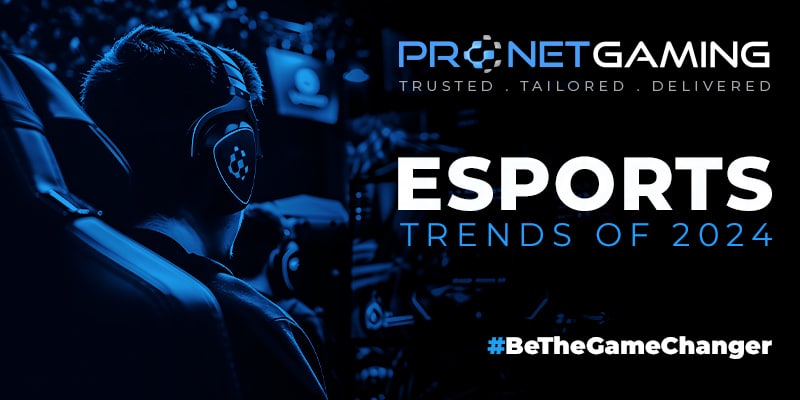CEO Alex Leese, shares his thoughts on the Latin American market in an EXCLUSIVE interview with Betting Mgz
How will Pronet Gaming’s experiences in emerging markets in Africa be beneficial to your plans and prospective partners in Latin America?
Our approach to every market is to offer customers a solution that is tailored to their goals. In emerging markets, where fragmented regulation, payment integrations and complex tax systems bring unique challenges, you have to drill down on a market by market level and understand the individual complexities. This is just as true in LatAm as any other region, and so by providing local operators with a bespoke platform with customised USPs, we give our partners the best chance of success.
How does a European supplier like Pronet Gaming convince a Latin American operator to partner with them rather than a local alternative?
Our commercial HQ may be based in London, but the B2C and B2B experience of our team extends across the globe. I’ve personally worked across Mexico, Argentina and Brazil, and we have on-the-ground teams to provide our partners with first-rate customer and consultancy services. Our expertise across LatAm, Africa and Asia has enabled us to complete deals on the same footing as a local provider, but with the financial stability of a global B2B firm. This, in my view, is the best of both worlds.
A lot of operators and suppliers currently have their eyes on Latin America, but how important will it be to have local knowledge and teams on the ground?
Absolutely crucial. In some jurisdictions like Mexico, the Provinces of Buenos Aires and Buenos Aires City, you must partner up locally in order to obtain a licence. Assuming the target is regulated markets, cutting corners is not an option. Working with local partners provides advice on payments to marketing, but also helps to manage the relationships with regulators and local governors. Given that LatAm is a continent that functions on the basis of relationships, you really have to get on the ground with a local partner and experience how the industry works to succeed there.
How does betting behaviour in Latin American markets compare to Europe? Are there standout differences on a country-by-country level?
As any region with huge and diverse populations, the answer is nuanced. For markets that already have or are on the cusp of regulation, it makes sense to offer more simple bet types and products in order to appeal to recreational players. That is why many of the .net sites being used to acquire customers in LatAm focus on quiz games to try to educate new audiences. But for the grey market platforms, which tend to be re-skinned versions of European sites, the end-users are as savvy and sophisticated as in any mature market and look for more complexity.
Will Latin America follow the lead of the U.S. with established land-based businesses using their existing reach to move into online, or is there room for more agile, online only brands to take advantage?
This is the one area where you can generalise. Historically, and for the foreseeable future, retail is king in Latin America and local heavyweights lead the way for brands going online. This has been evident in Colombia, where the two land-based market leaders have transferred their dominance to the recently regulated online space. However, this trend might be broken if more countries opt for open regulation with an unlimited number of licences, since online acquisition will trump an expensive retail inventory.
What are the most significant challenges/ hurdles for international betting companies?
Aside from the obvious challenges of brand and cultural adaptation, technical regulation is another hurdle. You must be nimble enough to adapt fast. Regulation either moves at a snail’s pace in Latin America or impossibly quick, often leaving just a few months to get the technology compliant. Our job is to get ahead of the game and provide a seamless, painless transition.
Colombia has led the charge when it comes to regulation in Latin America. Will the others follow suit and would it be helpful to have a level of coordination among regulators – or is that unlikely?
There may be some level of “imitation”, but I’m not convinced it will go as far as coordination, unfortunately. Brazil is on the verge of regulation in some form, be it an authorisation or concessionary model, but recent state lottery monopoly changes may hand more power to individual states. That said, there could always be a U-turn, which we’ve already seen countless times. Various Argentinean provinces have already been through the process of selecting applicants for a concessionary regime, but the approaches already vastly differ from one another. Then there are the rumours of regulation in Peru, but these have been around for some time.
Will offshore operators and their suppliers be frozen out as they have been in the U.S. or welcomed into the fold?
If you think about it, every brand is technically “offshore”. Hence, I wouldn’t say that offshore operators or providers are shunned as such, but instead tend to be forced into either establishing a local entity and tax residency, or to forming a specific joint venture with a local land-based operator to obtain a licence. In effect, their arms are open, but on their terms.








